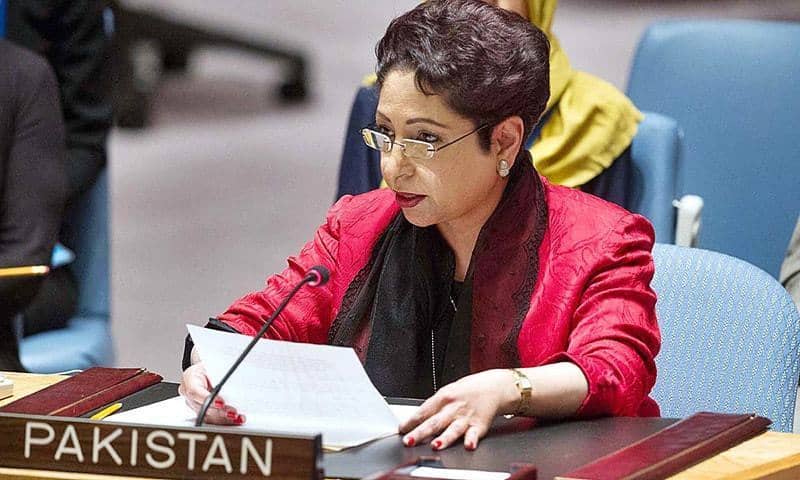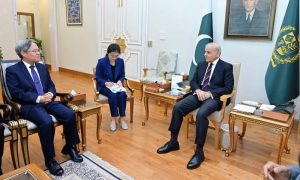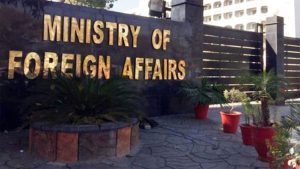NEW YORK (Staff Report) – Pakistan has told the United Nations that reform of the UN Security Council should only be based on democratic principles.
Speaking in inter-government negotiations at the UN building, Pakistan’s Ambassador Dr Maleeha Lodhi exposed the poor logic of India and its allies saying that the G4 formula of adding more permanent seats reflected the self-serving national ambition of a few at the expense of the world body’s wider membership.
She said that the objective of UNSC expansion should be to respond to the concerns and “aspirations of all, not just a few”.
“To propose allocation of 4-6 seats permanently to that many countries, while handing over only 4-5 seats to the rest of the membership is not only poor mathematics but also poor logic, and even poorer rationale for a just and meaningful reform”, she declared.
Opposing the proposal that sought expansion in permanent membership, the Pakistani envoy argued that this runs contrary to the principles that all Member States agree to make the Council “more representative, democratic, accountable, transparent and effective.”
Ambassador Lodhi said that the principle of sovereign equality of states demands equal opportunity for all States to seek membership of the Council. Only additional electable seats, on the basis of periodic elections and fixed rotation, would allow equal, fair and increased opportunity to all States to aspire for Security Council’s membership, she added.
She argued that the concept of “representation” would be hollow without accountability to those who were being represented. “Periodic elections are the only way to make the representatives accountable to the electorate,” she said.
Making the case for adding more non-permanent, electable seats, Ambassador Maleeha Lodhi said: “This would also allow larger regions, such as Asia and Africa, to accommodate cross-regional and political groups, including the OIC, the Arab League, ASEAN, and the SIDS.”
Rejecting the argument that new permanent members will counter the dominance of the existing permanent members, the Pakistani envoy asserted that in political history the principles of democracy have long-defeated the rationale for any “benevolent plutocracy”.
Empathising with the aspirations of regional groups who seek adequate representation, such as the African Union and the Arab Group, Ambassador Lodhi said that a consensus based regional demand was fundamentally different from the demand for individual membership by a few whose “national ambitions have in fact divided their regions and thwarted reform for so long”.
Describing regional representation as “essential to address the imbalance” in the Council’s composition, representative character and decision-making, Ambassador Lodhi said that the best way to do this was to enlarge the Council in the non-permanent category. “This not only allows more countries from respective regions to serve on the Council but also affords space to work out rotation of seats among cross-regional groups,” she added.
Reiterating Pakistan’s principled position against the addition of new Permanent seats, Ambassador Lodhi said that this would also undermine regional representation in the Council by creating the mirage that a country unelected by and unaccountable to its region could represent that region.
She bemoaned the fact that “precious years have been wasted on this reform debate” because of the ambition of a few. And she concluded by saying that the Security Council will be reformed “the day the collective interest of ALL Member States prevails over the narrow self-interest of individual countries.”













